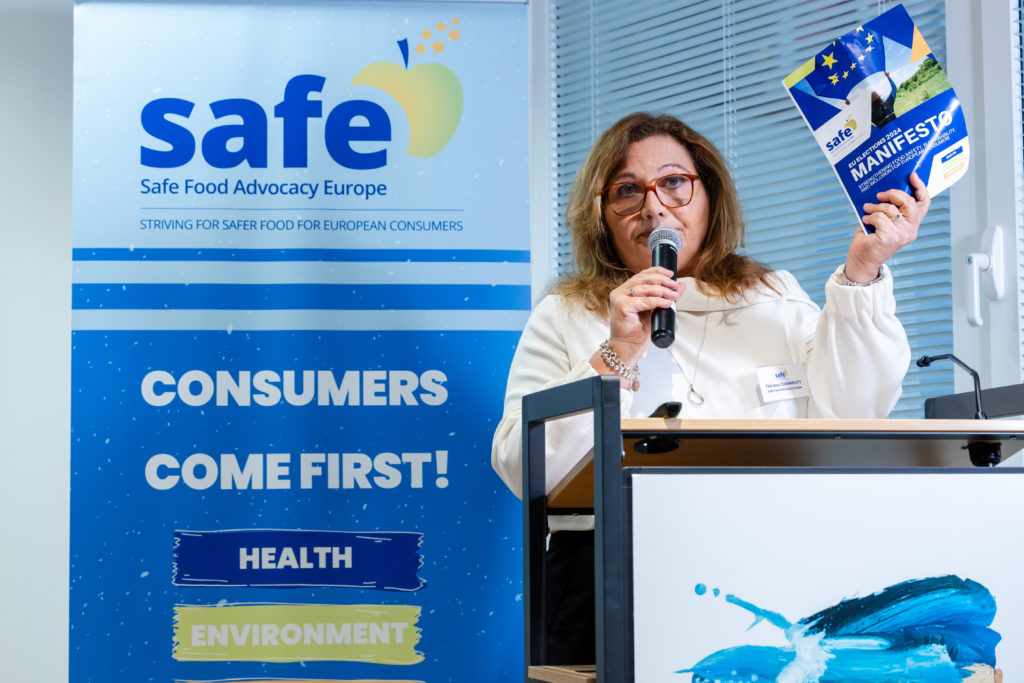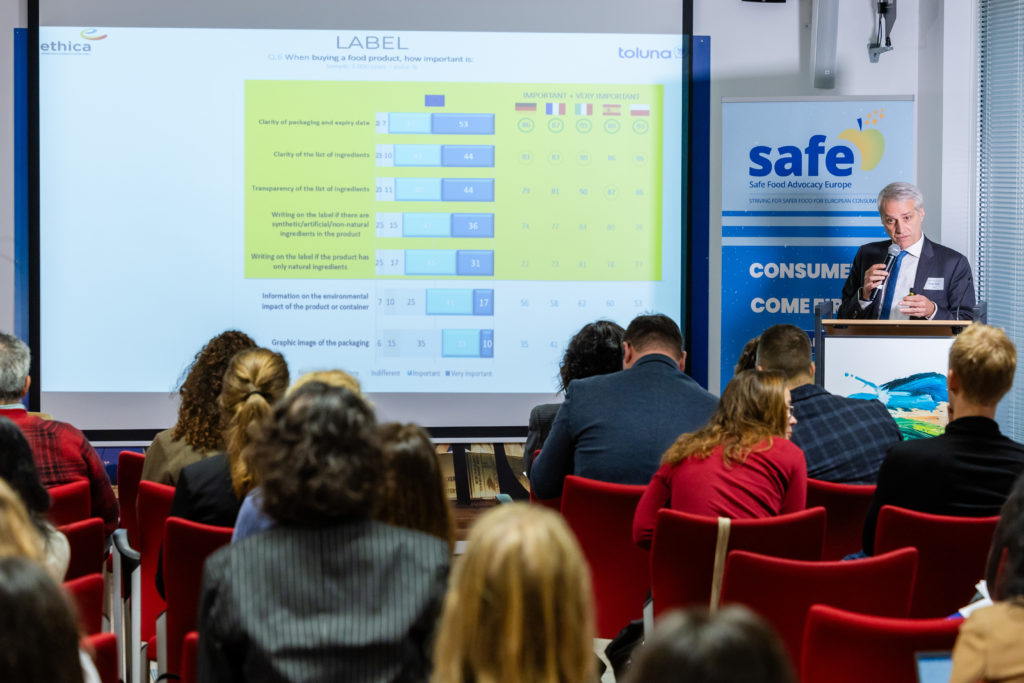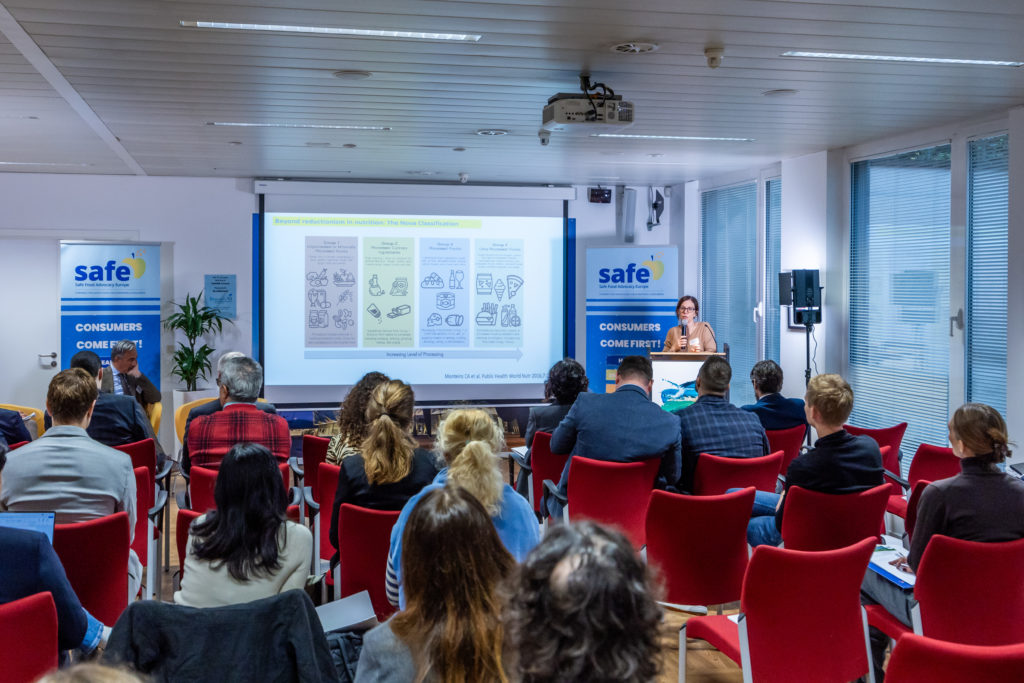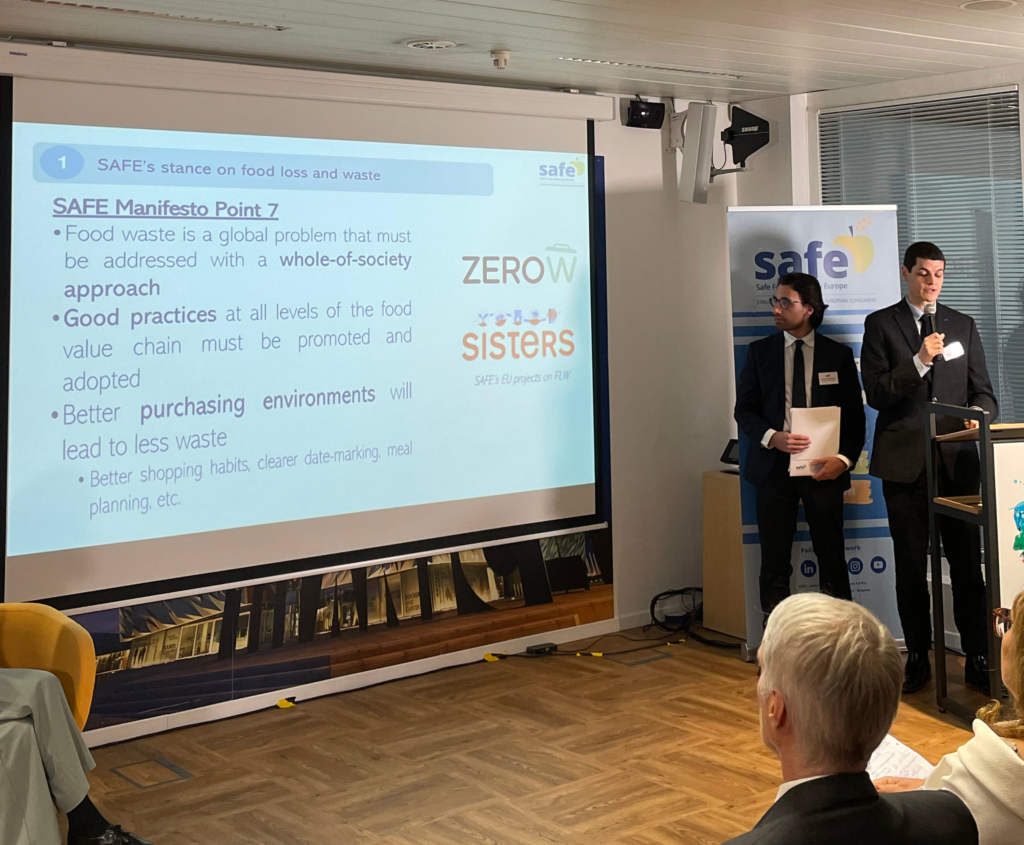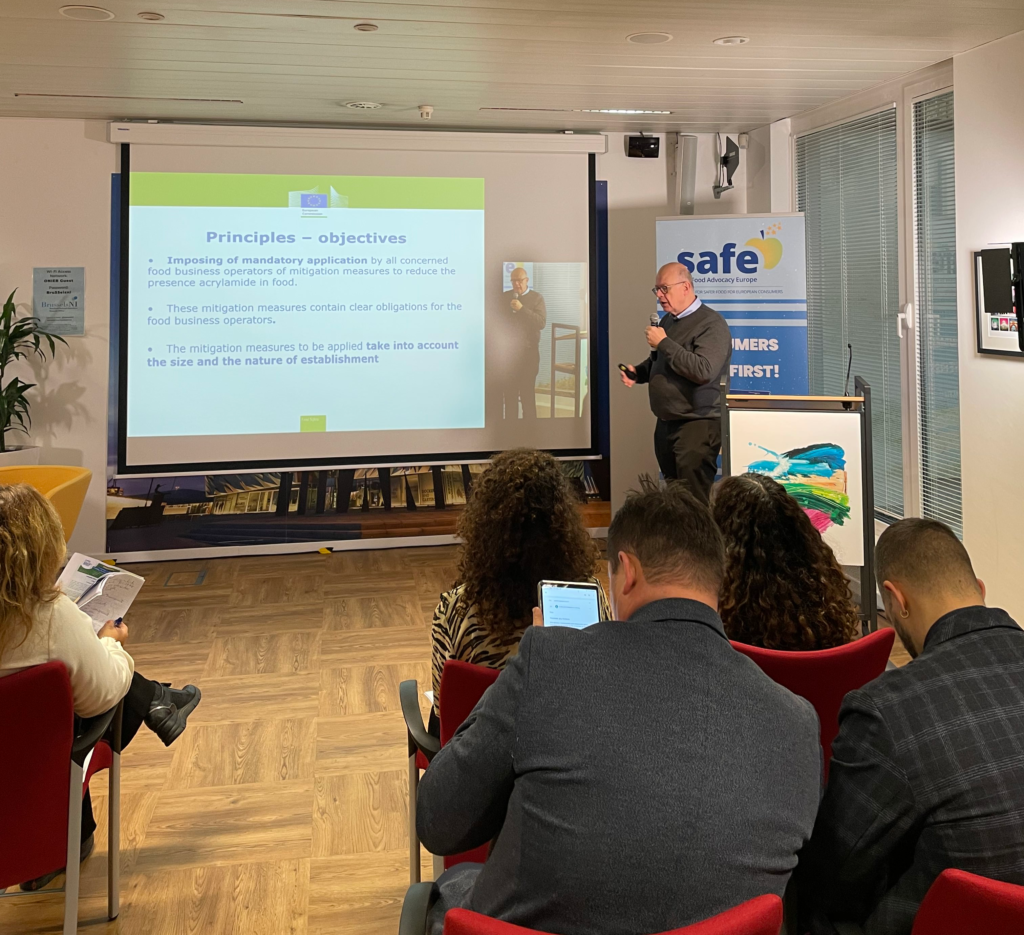SAFE’s Annual Conference – 19 November 2024
20 November 2024
NCD prevention, ultra-processed foods, and natural versus synthetic at SAFE’s 9th Annual Conference.
Over 130 participants attended SAFE’s 9th Annual Conference to discuss food safety from consumers’ perspective on 19 November in Brussels, at the beginning of the new European mandate.
Regulators, legislators and stakeholders from the food industry discussed key topics around food, consumers’ health, and sustainability, along with SAFE’s members. We were grateful to count with Vice President of the European Parliament Antonella Sberna and of MEP Michele Picaro.
A few takeaways
Secretary General of SAFE Floriana Cimmarusti said: “For the next mandate we urgently need a legislative framework for sustainable food systems, protecting European consumers’ health and offering them sustainable food choices. Healthy food should always be affordable, available, and easy to recognise.”
Deputy Director of SAFE Luigi Tozzi said: “Food-imports from third countries, the impact of artificial intelligence in agriculture and consumer choices, ultra-processed foods, and poverty and its impact on people’s diets require urgent action by the EU. We need an immediate solution to increase citizens’ and families’ purchasing power.”
A highlight in the programme was the discussion on products marketed as “natural” and the presentation of a Europe-wide survey commissioned by SAFE on consumers’ attitudes towards such claim. 86% of European consumers are more likely to buy products labelled as “natural”, but believe that products containing synthetic ingredients shouldn’t be considered natural or be sold as such. They also demand clarity in labelling and more legal requirements. Only 33% of European consumers believe that companies provide all necessary information on labels. 89% of Europeans believe that institutions should adopt regulations to make labels more transparent. 87% of Europeans think that an ingredient produced by GMOs should also not be considered as natural.
The survey, conducted in a sample of 5,000 people in Germany, France, Italy, Spain, and Poland, strengthens SAFE’s position that only truly natural products should be marketed as such: products containing synthetic ingredients, GMOs, and non-biodegradable products shouldn’t be in that category.
The Annual Conference included debates on non-communicable disease (NCD) prevention among people in need, on social inclusion, or on the sustainability of food systems.
Two studies were presented regarding the health risks of excessive consumption of ultra-processed foods (UPFs). One with Marialaura Bonaccio, Deputy Manager Epidemiologist from IRCSS Neuromed, based on a study on 24,000 people in Molise, Italy, sowing direct correlation between UPFs and health problems. The second, in which SAFE’s Deputy Director Luigi Tozzi explained consumers’ perceptions on UPFs.
Tozzi said: “A recent survey of European consumers’ perceptions shows that people would like to eat less ultra-processed foods, but many feel they have no other affordable, quick, or tasty options. They know UPFs are unhealthy, but they don’t know what to do about that. This shows the scale of the problem.”
SAFE works to reduce the average European’s intake of ultra-processed foods (UPFs), particularly among children and adolescents, who can suffer the resulting negative health impacts throughout their lifetimes. During the Conference, SAFE voiced concerns that some UPFs are being increasingly marketed as healthier options than other food products.
The conference addressed food waste reduction through updates on SAFE’s role in ZeroW and SISTERS, the two biggest EU-funded projects studying food waste reduction throughout the food chain. ZeroW makes an impact through nine systemic innovation living labs testing innovative solutions at each stage of the food supply chain to achieve significant food loss and waste reductions. SISTERS develops innovations for actors across the food value chain.
SAFE’s Annual Conference called for legally binding maximum levels of acrylamide in food. A contaminant contained in certain foods such as potatoes, cereals or bread and released when cooking, acrylamide has been under watch of the European Food Safety Agency (EFSA) for its neurotoxic and carcinogenic effects and was declared a health concern in 2015. Although benchmark levels exist in EU legislation for a number of food products, such as potato crisps, cookies, or waffles, there still aren’t any legally binding maximum levels. They should be at least below 150 micrograms per kilo (150µg/kg) for biscuits and baked foods directly marketed to children, and at levels well below 50 micrograms per kilo (50µg/kg) for baby foods. The scope of this legislation should also be broadened to cover vegetable crisps, dried fruits, and other foods.

